Robert Burns, also known as Rabbie Burns or The Ayrshire Bard, is probably the most famous and influential poet in all Scottish history. Scottish culture, as well as some of its traditions, are tinged with the spirit and works of this brilliant author. Pioneer of Romanticism, defender of the Scots language and an advocate of Liberalism and even early-stage Socialism, Robert Burns is a fundamental character to understand Scotland.
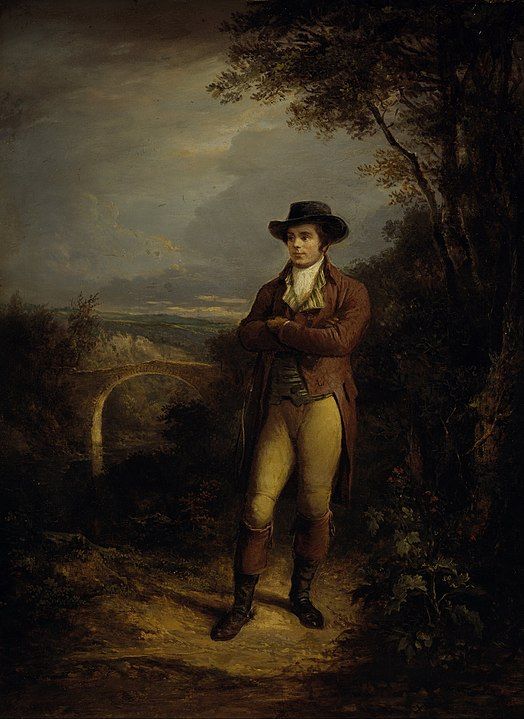
Robert Burns’ early life: birth and education
Robert Burns was born in the village of Alloway, in the outskirts of Ayr, southwest Scotland, on January 25th, 1759. He was the eldest of seven siblings in a family of farmers, hence his childhood was beset with hardships and strenuous work, which would eventually take a toll on his fragile health. Educated by his own father and a young local teacher, his talent seemed to be doomed to never flourish when, in 1779, at the age of twenty, he founded Tarbolton’s Bachelor’s Club alongside his brother Gilbert, a place of meeting, debate and leisure.
A few years later, encouraged by his friends, Roberts Burns took his first steps in his career as a poet while he kept working in his family farm and engaged in sultry affairs with several local ladies. Finally, in 1788, he married Jean Armour, the “Belle of Mauchline”, with whom he had nine children (which didn’t stop him from having three more with other women).
After a convoluted, tragically brief life filled with strain, hardships, struggling, romance, poetry and politics, Robert Burns passed away on July 21st, 1796 at the age of thirty-seven, most likely owing to an aggravated rheumatic cardiopathy.
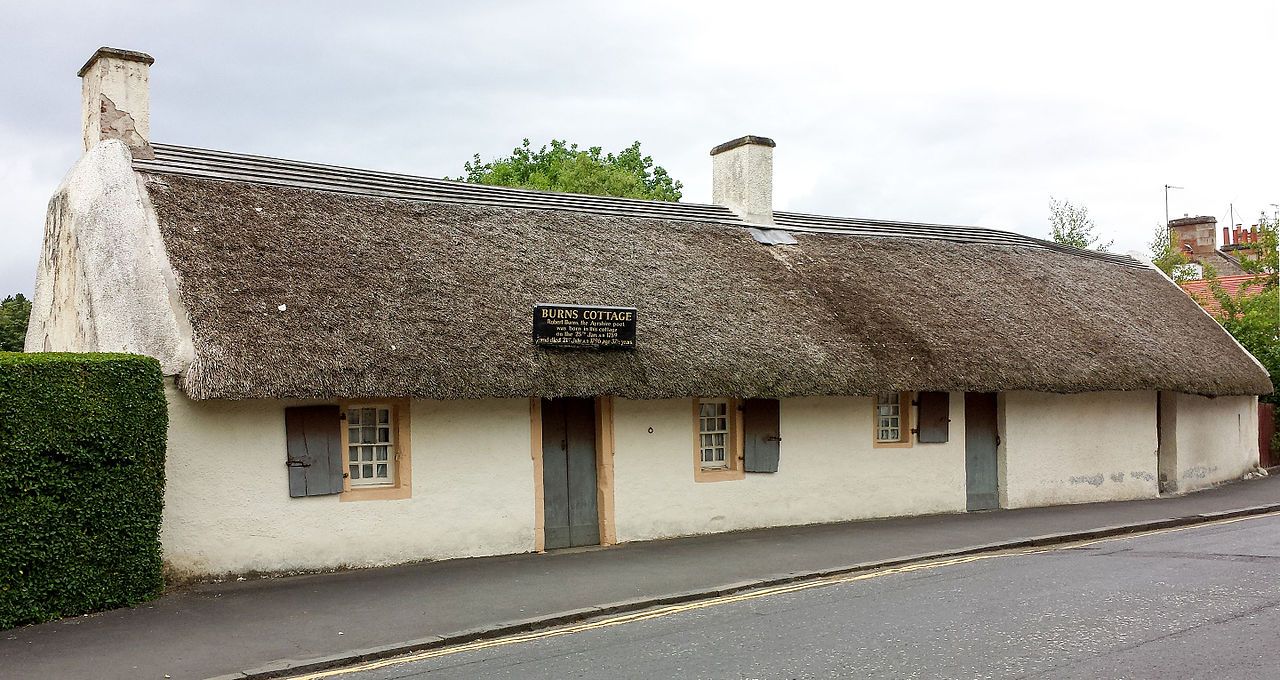
Robert Burns’ main works
Robert Burns graced Scottish poetry with works as relevant as the romantic “Ae fond kiss”, devoted to his beloved Clarinda, or “A red, red rose”, inspired by folk rhyme that he heard a townswoman sing; the delightful ode “To a mouse”; the fantastic and folklore-packed poem “Tam O’Shanter”; and, of course, the song which made him literally worldwide famous, “Auld Lang Syne”, an ode to nostalgia and friendship which is usually sang as a group during New Year’s Eve, arms intertwined.
To a Mouse - BY ROBERT BURNS On Turning her up in her Nest, with the Plough, November 1785.
Wee, sleeket, cowran, tim’rous beastie, O, what a panic’s in thy breastie! Thou need na start awa sae hasty, Wi’ bickerin brattle! I wad be laith to rin an’ chase thee Wi’ murd’ring pattle!
I’m truly sorry Man’s dominion Has broken Nature’s social union, An’ justifies that ill opinion, Which makes thee startle, At me, thy poor, earth-born companion, An’ fellow-mortal!
I doubt na, whyles, but thou may thieve; What then? poor beastie, thou maun live! A daimen-icker in a thrave ’S a sma’ request: I’ll get a blessin wi’ the lave, An’ never miss ’t!
Thy wee-bit housie, too, in ruin! It’s silly wa’s the win’s are strewin! An’ naething, now, to big a new ane, O’ foggage green! An’ bleak December’s winds ensuin, Baith snell an’ keen!
Thou saw the fields laid bare an’ waste, An’ weary Winter comin fast, An’ cozie here, beneath the blast, Thou thought to dwell, Till crash! the cruel coulter past Out thro’ thy cell.
That wee-bit heap o’ leaves an’ stibble Has cost thee monie a weary nibble! Now thou’s turn’d out, for a’ thy trouble, But house or hald, To thole the Winter’s sleety dribble, An’ cranreuch cauld!
But Mousie, thou art no thy-lane, In proving foresight may be vain: The best laid schemes o’ Mice an’ Men Gang aft agley, An’ lea’e us nought but grief an’ pain, For promis’d joy!
Still, thou art blest, compar’d wi’ me! The present only toucheth thee: But Och! I backward cast my e’e, On prospects drear! An’ forward tho’ I canna see, I guess an’ fear!
Robert Burns and Scottish culture
Thanks to his straightforward prose, honest and direct, heir to the Makar tradition heralded by bards and troubadours in Renaissance Scotland, Robert Burns’ lyrical works soon became highly appreciated both by his closest environment and also by a humbler audience. In addition to this, his liberal political ideas and the fact that he favored the use of Scots in his works, a traditional Scottish language which was sternly frowned upon by the elites back then, Rabbie eventually became the most beloved poet by the folk, being almost revered.
Celebrating “Burns Night” and its meaning
Precisely due to the fact that both the humble folk and his friends enormously valued his works as well as himself, when Robert Burns passed away his loved ones started meeting every January 25th, the poet’s birthday, to cherish his memory with a very special dinner brimming with Scottish traditions. Nowadays, this “Burns Night” or “Burns Supper” is still celebrated yearly on this very same date, and, in fact, it is not only one of Scotland’s most cherished and traditional festivities, but it is also celebrated wherever Scots have emigrated, bringing Scottish culture together across the world. Burns Night consists of a dinner in which guests, welcomed by a bagpiper and special speech, have a first course of soup, and a main course of haggis, which is presented in the dining room with the highest honors, reciting the poem by Robert Burns “Address to a Haggis”. The meal goes on with loads of whisky, bagpipe tunes, Scottish poetry, songs, toasts to the bard and the comical “Toast to the Lassies”, followed by its correspondent “Reply from the Lassies”, a rhetoric gender fight on a humorous note. At last, the heartfelt “Auld Lang Syne” is sung.
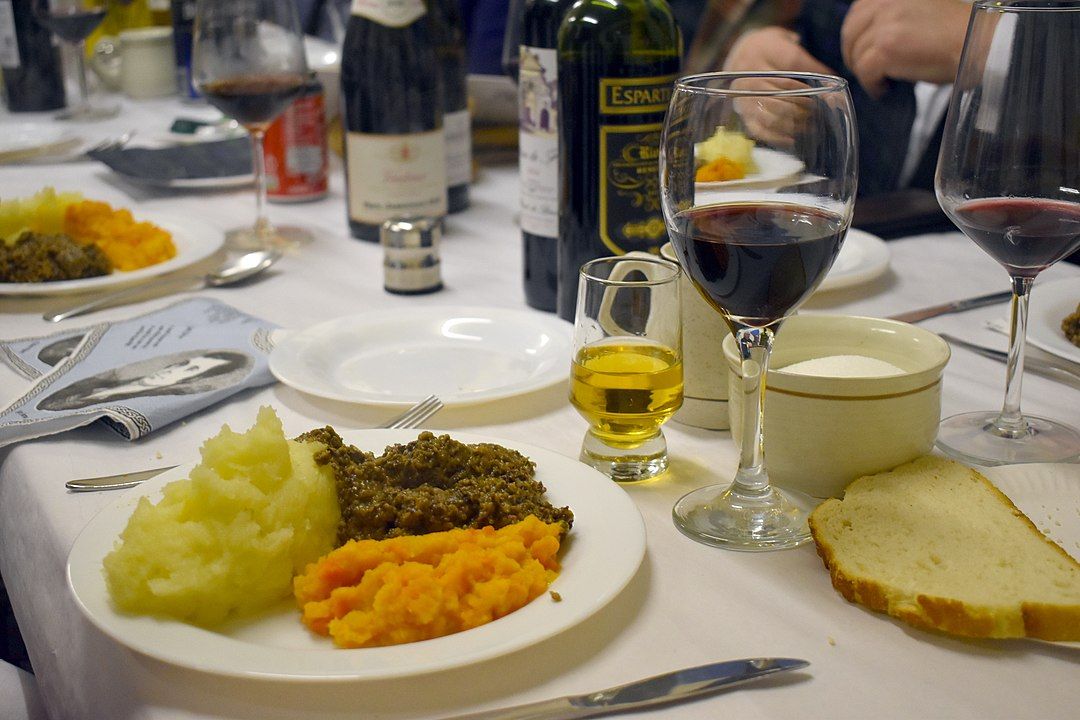
Places related to Burns in Scotland
The traveler wishing to visit sites in Scotland related to Robert Burns should undoubtedly head to Alloway, the Ayrshire village that witnessed the poet’s early years. Both his birthplace and also a wonderful museum entirely devoted to him can be explored, besides a lengthy walk encompassing some of the places described in “Tam O’ Shanter”, in Alloway’s old church and the Rozelle House pictorial gallery, all of which are renowned landmarks of tourism in Scotland. Not far away from there, in Tarbolton, the notable Bachelor’s Club founded by a young Robert Burns can also be visited and, further south, in Dumfries, there is also The Globe Inn, frequently trodden by the Scottish poet, where travelers can eat and embark on themed tours. Should your trip be limited to the city of Edinburgh, fret not! Drop by the marvelous Writers’ Museum and indulge in endless trivia about Robert Burns, Walter Scott and Stevenson, to whom the venue is entirely devoted. If you wish to complete your experience, you can take a free tour throughout the Old Town!
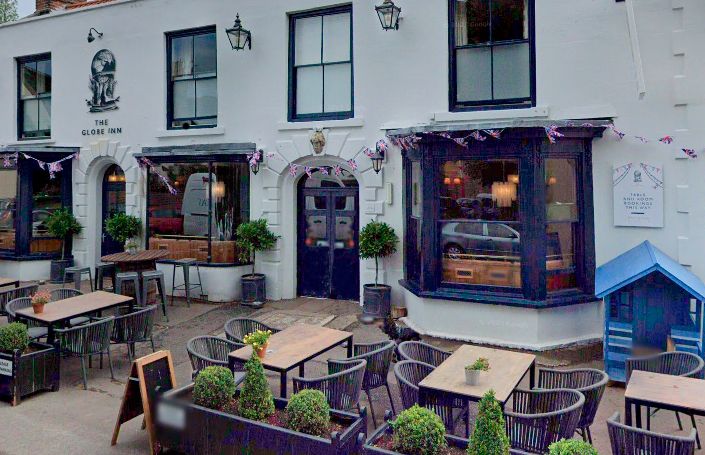
Robert Burns’ present-day legacy
Robert Burns’ legacy reaches far beyond his uncontested literary value, and it exceeds Scotland’s borders. His defense of the Scots language and folk traditions, his innovative political orientation and even his extraordinary charisma have made him today as beloved as he was in life, which can be attested by the countless statues in his honor dotting the world. Thanks to his works and the legacy that his loved ones preserved and spread, events such as Burns Night or songs like “Auld Lang Syne” bring the descendants of Scottish emigrants far and wide together to this day, connecting them again to the nation from which they all once departed. His legacy is so influential that you don’t even have to be Scottish to be touched while singing “Auld Lang Syne” as the new year approaches!
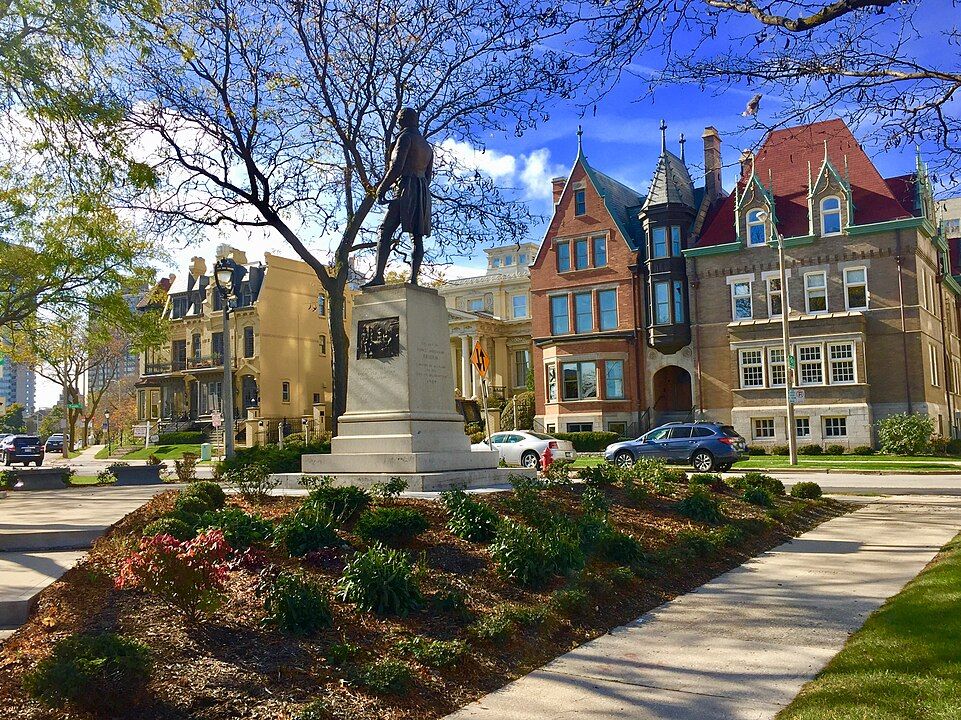
How to explore the world of Robert Burns
To know more, you can read some of the best poems by Robert Burns here: scotland. org/events/burns-night/the-poetry-of-robert-burns And delve deeper into his life and works here: poetryfoundation. org/poets/robert-burns Or you can also check out this veritable encyclopedia of Robert Burns: robertburns. org